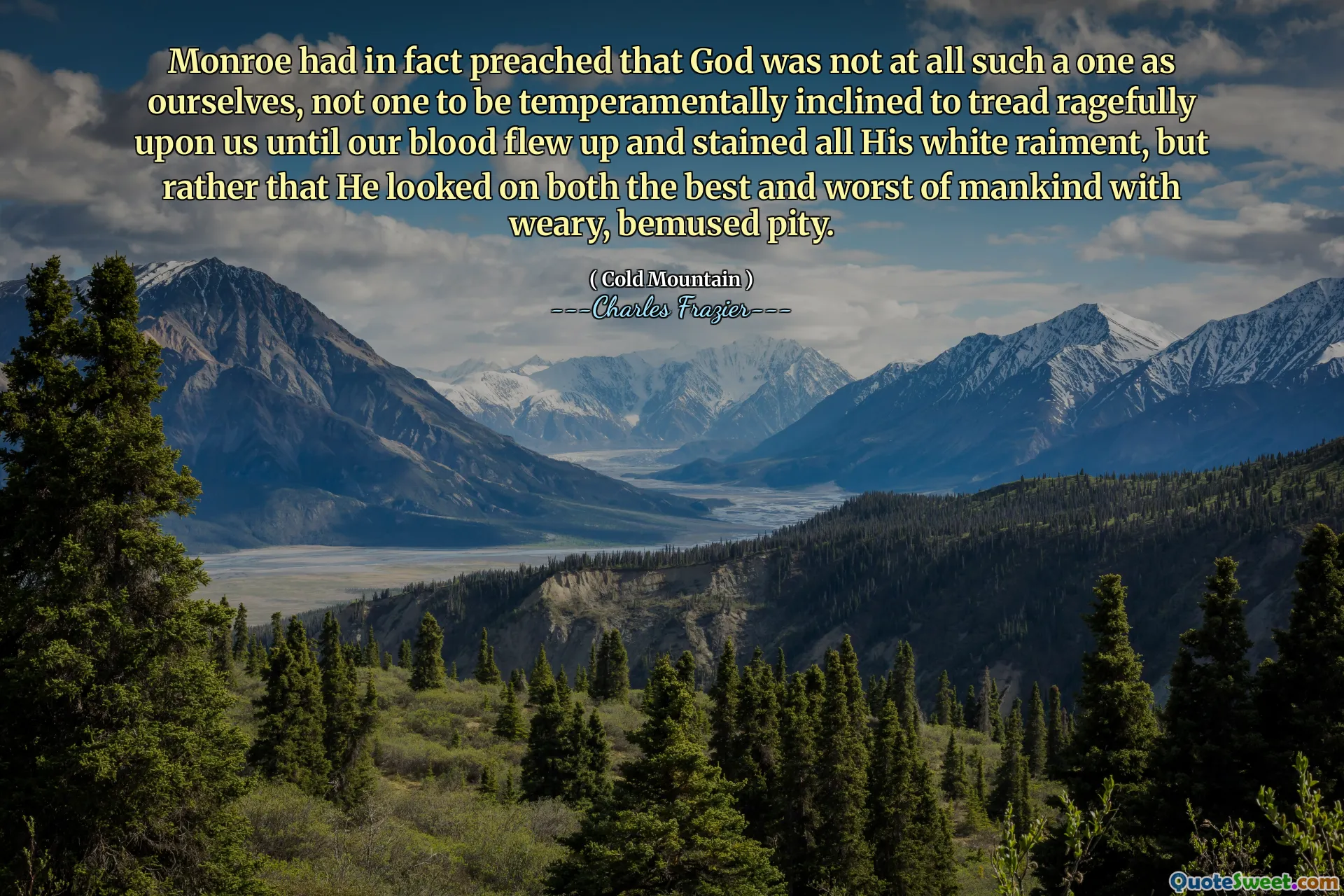
Monroe had in fact preached that God was not at all such a one as ourselves, not one to be temperamentally inclined to tread ragefully upon us until our blood flew up and stained all His white raiment, but rather that He looked on both the best and worst of mankind with weary, bemused pity.
In "Cold Mountain," the character Monroe conveys a unique perspective on God, suggesting that He does not share human emotions, particularly those associated with anger and vengeance. Instead of viewing God as a figure who would unleash fury upon humanity, Monroe presents Him as a being who observes people with a mix of sadness and detached amusement at their struggles. This interpretation emphasizes a more compassionate and understanding deity who recognizes the complexities of human nature.
This portrayal invites reflection on the nature of divinity and challenges the conventional image of a wrathful God. Rather than punishing humanity for its failings, Monroe's God embodies a sense of patience and empathy, accepting both the good and bad with a gentle, almost sorrowful acknowledgment of human flaws. This view serves to inspire a deeper understanding and acceptance of oneself and others, fostering a sense of grace in the face of imperfection.






